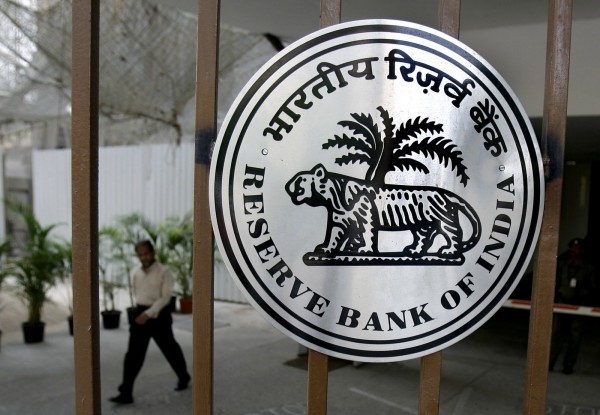
Indian markets have shrugged off both #Brexit and #Rexit.
And the forward-looking nature of markets implies they do not foresee problems due to these exits.
June suffered from an excess of exits. But none of them lived up to forecasts of dire consequences, at least for India. For now, Indian markets have shrugged off both Brexit and Rexit — the exit of Governor Raghuram Rajan from the Reserve Bank of India (RBI). And the forward-looking nature of markets implies they do not foresee problems due to these exits.
India and its institutions have strengthened and diversified so there is now sufficient depth to withstand shocks. The outgoing RBI governor has also contributed to building this resilience.
India’s diversification means that there are normally sufficient positives to counteract a few negatives. Soft oil prices, a pick-up in reforms and good rains continue to put India in a sweet spot.
Inflation has fallen although growth remains below capacity. Institutional investors want low deficits, low inflation and a strong currency, but they also value higher growth.
They need not be perturbed by a new governor who gives more weight to growth. The new governor will be doing this within the constraints of the inflation targeting framework.
The flexible inflation targeting is an example of institutional strengthening. Not only will it constrain the governor but it will also make their views on the policy rate less important.
Implementation by a monetary policy committee will make for more continuity.
But the person at the top makes a big difference in any complex system since interpretation and direction are very influential. Under Governor Rajan, the RBI did better in reducing vulnerabilities and in building foundations for future growth than in managing the cycle.
This was partly because he believed more in the efficacy of micro-structural and financial reforms for building future growth than in trying to stabilise current growth. His priority was to make India a low inflation economy.
What kind of beliefs, experience and training should the new governor ideally have? What are the areas they must attend to?
Freedom from ideology is a necessity — they must be neither a hawk nor a dove. Otherwise they run the risk of neglecting data and context in favour of fixed priors.
Knowledge of macroeconomics adapted to the intricacies of a more open Indian economy, as well as an understanding of the financial sector and the domestic and international reform initiatives in play, is required.
Paying careful attention to empirical data and to special features of the Indian economy, rather than blindly applying preconceptions or concepts honed in different economies, is crucial in a heterogeneous economy, especially when implementing inflation targeting for the first time.
The RBI interacts almost exclusively with the financial sector, but makes policy for the nation as a whole. So the governor has to make a special effort to be sensitive to the needs of broad constituencies. The interests of different constituencies are often in conflict and have to be balanced. While savers and foreign investors benefit from high interest rates, workers, industry and consumers want lower rates.
The room available for change that is commensurate with differing objectives is often small and has to be quickly seized. There has to be awareness of policy impact on different parts of the system, and of interaction across parts.
The stabilisation of shocks is the essence of good macroeconomic policy. Otherwise there is an unnecessary sacrifice of output and employment — many lives lose the opportunity to flourish. It is often said that a small fall in interest rates is not material for firms’ investment decisions.
But interest rates do affect demand for consumer durables and housing loans — areas where there is excess capacity. And higher sales affect firms’ demand and their decision to invest.
In India, food prices and other supply-side bottlenecks push up costs and prices while monetary tightening largely reduces demand and output. Tightening has to be kept as mild as possible, accompanied by coordinated action from the government to reduce costs.
The interest rate can be changed in response to any changes in costs and inflation. So the new governor must be able to work well with the government, and clearly communicate which components of inflation the RBI can affect and for which the responsibility lies with the government.
Good communication is essential to help anchor expectations of inflation and give predictability to markets. For the policy to be credible, a framework within which inflation targeting is expected to work has to be clearly articulated.
India has a mix of backward- and forward-looking behaviour. This implies that changes in policy rates must be fast because of lagged effects, but they need not be large.
The announced future direction can affect behaviour today, in a cumulative series of small steps that add up to a large change, while leaving room for India to learn from and adapt to shocks. A smaller cumulative change affects demand as financial deepening improves transmission.
The overall change also has to be small as monetary policy does not aim to create a large reduction in demand, but to anchor inflation expectations with complementary supply-side measures.
As the regulator of banks and payment systems, the governor will have to continue the process of improving accountability, innovation and inclusion.
The emphasis must be on prudential regulation that creates better incentives and reduces regulatory delay. The coordination between macro-prudential and monetary policy also needs to be improved. Even as domestic systems are made more robust, the new governor must engage with international forums to ensure emerging market interests are reflected in reforms.
This article was republished from EastAsiaForum.org. Ashima Goyal is Professor of Economics at the Indira Gandhi Institute of Development Research, Mumbai.